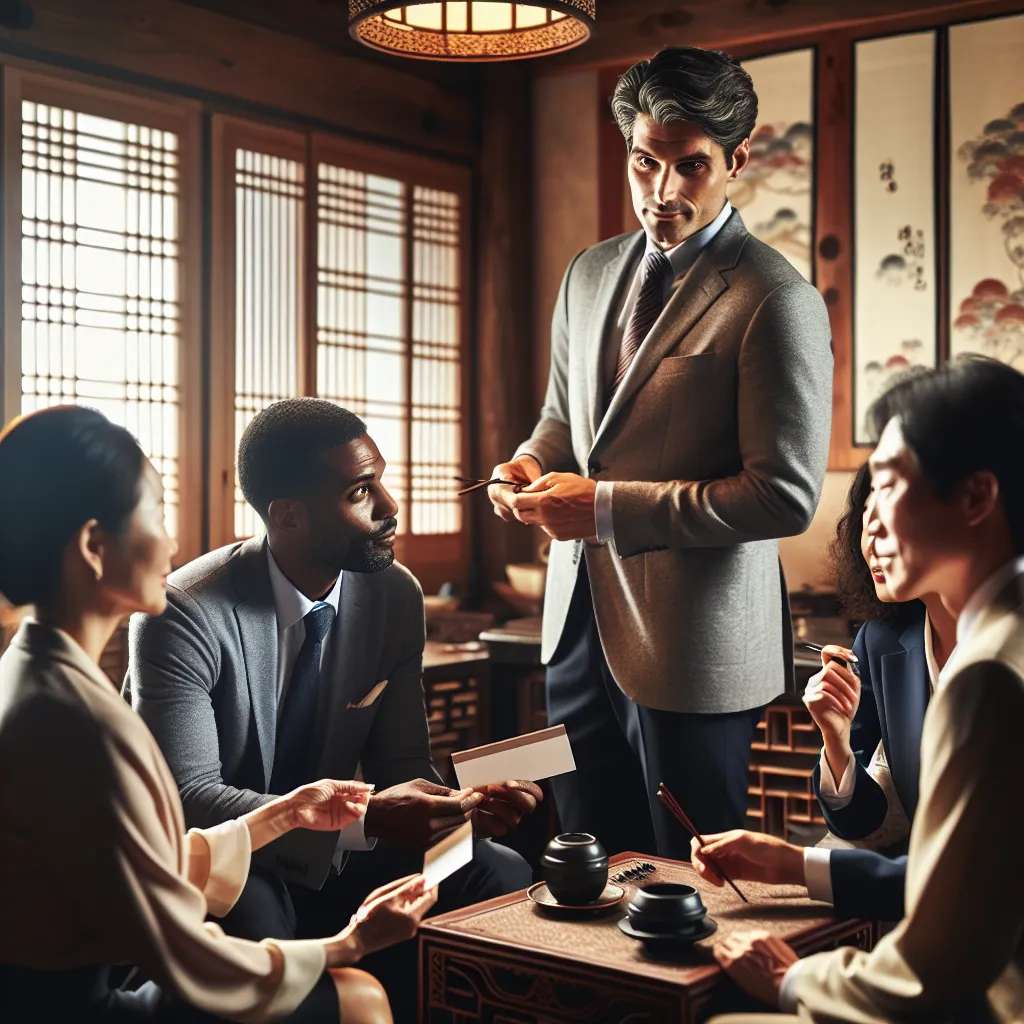As you prepare to negotiate contracts in Korea, it’s essential to understand the cultural dynamics at play. Building trust and relationships is key to successful deal-making in this context. Navigating the legal framework can be complex, so leveraging specialized expertise will be crucial. By focusing on these aspects, you can increase your chances of reaching mutually beneficial agreements. Remember, each negotiation is an opportunity to learn and grow, so approach them with an open mind and a willingness to adapt. Good luck with your contract negotiations in Korea!

Understanding Cultural Dynamics
When it comes to negotiating contracts in Korea, understanding the cultural dynamics is crucial for successful deal-making. Korea is known for its strong emphasis on hierarchy, respect for elders, and indirect communication style. These cultural aspects greatly influence the negotiation process and can impact the outcome of the deal.
The Role of Age, Position, and Status
In Korean business culture, age, position, and status play a significant role in negotiations. It is important to show respect to the most senior person in the room, as decisions are often made based on consensus and hierarchy. Building a good relationship and trust with your Korean counterparts is essential before diving into the specifics of the contract. This may involve socializing outside of work, such as sharing a meal or attending business dinners.
Importance of Indirect Communication
Furthermore, indirect communication is common in Korean business settings. It is important to pay attention to non-verbal cues, as what is not said can sometimes be more important than what is actually spoken. Silence is often used as a tool to express disagreement or to indicate that more time is needed for consideration. Understanding these nuances in communication can help navigate the negotiation process more effectively.
Cultural Preferences and Beliefs
In terms of numbers, Koreans have a cultural preference for certain digits. For example, the number 4 is considered unlucky as it sounds similar to the word for ‘death’ in Korean. On the other hand, the number 8 is associated with prosperity and wealth. Being mindful of these cultural beliefs can show your Korean counterparts that you respect and understand their culture, which can positively impact the negotiation process.
In conclusion, by understanding the cultural dynamics at play in Korea, you can enhance your negotiation skills and increase the likelihood of a successful deal. Building strong relationships, respecting hierarchy, and being attuned to non-verbal communication are key aspects to consider when negotiating contracts in Korea. Remember, it’s not just about the terms of the contract, but also about the mutual respect and understanding between parties that ultimately leads to a successful outcome! 🤝🇰🇷
Building Trust and Relationships
When it comes to negotiating contracts in Korea, building trust and relationships is key to successful deal-making. In Korean business culture, establishing a strong personal connection with your counterparts is often more important than just focusing on the terms of the contract.
Understanding “Jeong”
Building trust starts with understanding the concept of “jeong,” which refers to a deep emotional bond and loyalty between individuals. Demonstrating sincerity, respect, and a genuine interest in building a long-term relationship can go a long way in gaining your Korean partners’ trust.
Emphasis on Hierarchy and Respect
One important aspect of building trust in Korea is the emphasis on hierarchy and respect for seniority. Showing proper respect to senior members of the team or organization can help establish a positive impression and pave the way for smoother negotiations.
Prioritizing Relationships
In Korean business culture, relationships are often prioritized over strict adherence to deadlines or contractual terms. Taking the time to get to know your counterparts on a personal level, such as sharing a meal or engaging in small talk, can help strengthen the relationship and create a more favorable negotiating environment.
Patience and Communication
Additionally, it is essential to be patient and demonstrate a willingness to invest time in cultivating the relationship before diving into contract negotiations. Rushing the process or pushing for quick decisions can be perceived as disrespectful and may hinder the trust-building process.
Communication is another crucial element in building trust and relationships in Korea. Clear and concise communication, coupled with active listening, can help bridge any cultural or language barriers and foster a deeper understanding between parties.
By focusing on building trust and relationships in Korean business negotiations, you can set the foundation for successful deal-making and long-lasting partnerships. Remember, in Korea, business is not just about the contract; it’s about the people and the connections you build along the way.
Navigating Legal Framework
When it comes to negotiating contracts in Korea, understanding the legal framework is crucial for successful deal-making. In Korea, contracts are governed by the Korean Civil Code, which outlines the basic principles of contract formation, validity, and enforcement. Additionally, specific industries may have regulations that impact contract negotiations, such as the financial sector or real estate market.
The Concept of Good Faith
One key aspect to consider when navigating the legal framework in Korea is the concept of good faith. Korean law places a strong emphasis on good faith in contract negotiations, requiring parties to act honestly and fairly. This means that parties should disclose all relevant information, negotiate in a transparent manner, and strive to reach mutually beneficial agreements.
Role of Written Contracts
Another important factor to keep in mind is the role of written contracts. While oral contracts can be legally binding in Korea, having a written contract is highly recommended to avoid misunderstandings and disputes. Written contracts should clearly outline the rights and obligations of each party, as well as any specific terms and conditions agreed upon during negotiations.
Dispute Resolution Mechanisms
Furthermore, it is essential to be aware of the dispute resolution mechanisms available in Korea. In the event of a contract dispute, parties can choose to resolve their issues through litigation, arbitration, or mediation. Understanding the pros and cons of each option can help parties make informed decisions and protect their interests.
Overall, navigating the legal framework in Korea requires a thorough understanding of the Korean Civil Code, a commitment to good faith negotiations, and a proactive approach to contract drafting and dispute resolution. By staying informed and proactive, parties can increase their chances of successful deal-making in Korea! 🌟📝💼
Leveraging Specialized Expertise
When it comes to negotiating contracts in Korea, leveraging specialized expertise can make all the difference in successful deal-making. Whether you are a seasoned professional or new to the business scene in Korea, having a deep understanding of the local market, culture, and legal framework is crucial for navigating the complexities of contract negotiations.
Understanding the Legal Landscape
One key aspect of leveraging specialized expertise is having a clear grasp of the legal landscape in Korea. Understanding the intricacies of Korean contract law, including key provisions, standard clauses, and potential pitfalls, can give you a significant advantage at the negotiating table. For example, knowing the importance of specific language in contracts, such as indemnity clauses or dispute resolution mechanisms, can help you craft agreements that protect your interests and mitigate risks.
Cultural Competence in Negotiations
In addition to legal expertise, cultural competence is essential when negotiating contracts in Korea. Building strong relationships based on trust and mutual respect is a cornerstone of Korean business culture. By demonstrating an understanding of Korean customs, etiquette, and communication styles, you can establish rapport with your counterparts and lay the foundation for successful negotiations. Remember, in Korea, business is often conducted based on personal relationships, so investing time in building connections can pay off in the long run.
Industry-Specific Knowledge
Moreover, leveraging industry-specific knowledge can give you a competitive edge in contract negotiations. Understanding market trends, competitive dynamics, and regulatory requirements relevant to your industry can help you tailor contracts to meet the unique needs of your business. By showcasing your expertise and demonstrating how your proposed terms align with industry standards and best practices, you can build credibility and confidence with your negotiating partners.
In conclusion, when negotiating contracts in Korea, leveraging specialized expertise in legal matters, cultural nuances, and industry-specific knowledge is essential for achieving successful deal-making outcomes. By combining these elements and approaching negotiations with a strategic mindset, you can navigate the complexities of contract negotiations with confidence and achieve mutually beneficial agreements. Remember, preparation, professionalism, and a collaborative approach are key to unlocking successful deal-making opportunities in Korea! 🤝🇰🇷
In conclusion, negotiating contracts in Korea requires a deep understanding of cultural dynamics, a focus on building trust and relationships, adept navigation of the legal framework, and the utilization of specialized expertise. By taking these factors into consideration, you can increase the likelihood of successful deal-making in the Korean business environment. Remember, each negotiation is an opportunity to bridge cultural gaps, forge strong connections, and ultimately achieve mutually beneficial agreements. Embrace the challenge, stay open-minded, and approach each negotiation with a spirit of collaboration and respect. Your efforts will not only lead to successful contracts but also pave the way for long-term partnerships and business growth.
